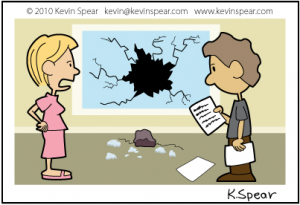Part One: The Dream of an Acceptance Letter

“At least they returned your novel with a personal rejection letter.”kevinspear.com
I am happy to be not published. Yes, you read that right: not. This is a difficult story to tell. It must sound crazy that I wanted to get out of a signed publishing contract. Isn’t that a struggling writer’s dream come true? Yet, today I am thrilled to hold a termination and rights-reversion letter in my hands.
A year ago, I would have felt differently: I did feel differently.
I used to be desperate. It’s embarrassing to admit how long—and how badly—I have carried the burden of this dream. Turning fifty was painful because I had always imagined being on the other side of a successful author career by now. In my youth, I envisioned myself as an adult wearing dark turtleneck sweaters at bookstore signings and enjoying my well-earned fame.
My first self-publishing efforts in seventh grade used my dad’s electric typewriter and hand-drawn covers. A simple peasant girl discovers she belongs to a race of magical beings living secretly among us. A female Tarzan dwells on a mystical island inhabited by space aliens and eloquent great apes. The margins of my school notebooks were full of amazing creatures and swashbuckling cavaliers.
In college, I majored in English lit and creative writing. My teachers praised my space operas and vampire stories, but I was rejected by the campus literary journal. Now I understand that they were probably looking for mainstream poetic literature, not SF/F genre, but at the time I took it personally.
Life happened. I got married. I worked a series of office jobs. I raised two daughters. I took night courses to become a paralegal. Somehow I squeezed in time to keep writing. I joined critique groups and workshops where I’ve met some of my dearest friends. In the days before email, I spent a fortune on postage and photocopies. There’s an expression among us writers, that you can paper the walls with your rejection slips. Well, I need bigger walls!
I turned 30…then 40…then 45… The unfulfilled dream got heavier as the years went on. Going the self-publishing route was no better. I tossed a book up on Amazon in 2009 and, to date, it has netted a handful of sales. It weighed upon my soul, the longing to hear “yes” from a publisher. Instead I heard this:
- After thoughtful consideration, however, we have concluded that unfortunately it didn’t work for us, so we’ll have to say no.
- Unfortunately, we do not feel this piece is right for us at this time. We do wish you all the best.
- I’m afraid it’s not quite right for us, but wish you the best of luck in your pursuit of publication.
- Unfortunately, [title] is not quite right for us. I wish you the best of luck placing it elsewhere.
- Unfortunately, it does not meet our needs at this time.
- Unfortunately, it does not meet our needs at this time.
- Unfortunately, it does not meet our needs at this time.


